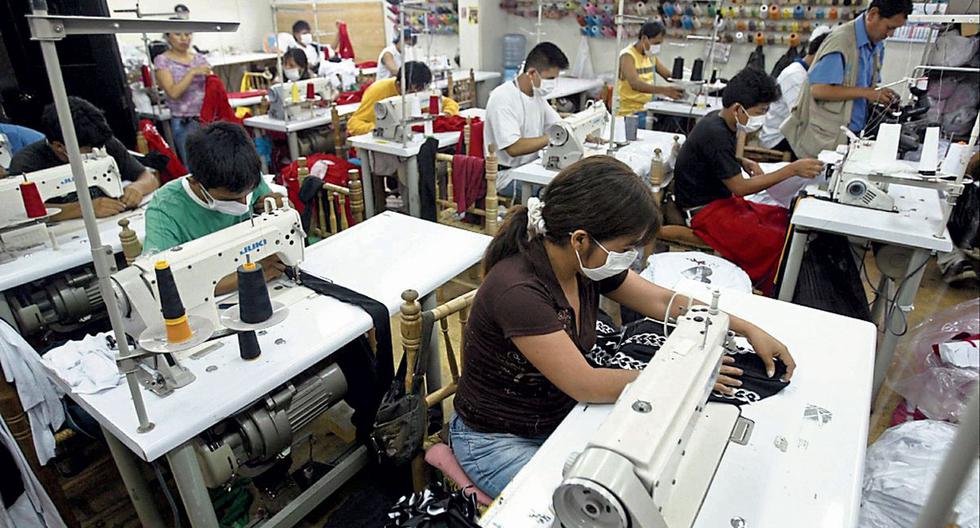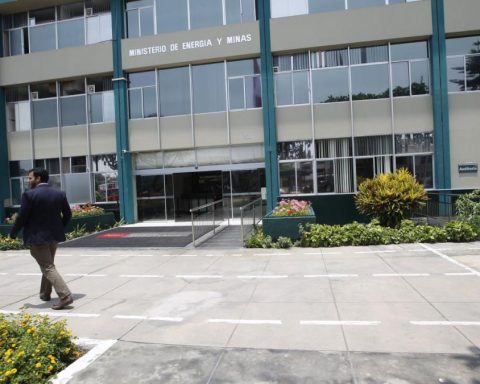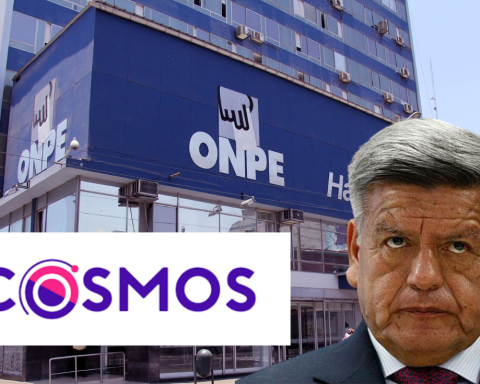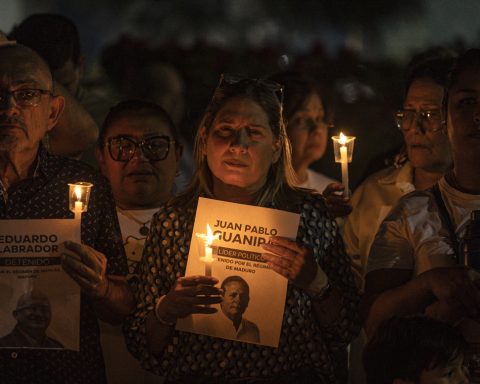The elimination of labor outsourcing -through Supreme Decree No. 001-2022-TR- given by the Ministry of Labor (MTPE) without social dialogue sets a terrible precedent in the country and today more than 100,000 workers, especially from small and medium-sized companies, are at risk of losing their jobs, he said Ana Maria Choquehuancapresident of the Peruvian SME Association.
During his speech at the webinar “Generation of employment, national production and labor situation”, organized by the National Society of Mining, Oil and Energy (SNMPE), Choquehuanca pointed out that this regulation violates the fundamental rights of all Peruvians because it affects the freedom of contract, the right to work and freedom of enterprise.
LOOK: Ana María Choquehuanca on Betssy Chávez: “What she is doing is destroying the business community”
“This is a populist measure with a clear ideological bias that was approved by the MTPE behind the back of the National Council for Labor and Employment Promotion (CNTPE), a space for dialogue between employers and workers; that will only bring with it the precariousness of employment and more informality”, he stressed.
In this sense, he regretted that the current Government is unaware of the positive effects of outsourcing services, which is a mechanism recognized worldwide because it helps to increase productivity, efficiency and safety for workers.
“It is the SMEs, for example, that have specialized in the mining sector, especially in the field of metalworking with very good results. At the national level, the data indicates that 62% of companies have outsourced their maintenance services, 32% outsourced the security of their facilities and 14% part of their production process.”, he indicated.
Likewise, Choquehuanca expressed concern that the labor agenda that the current government administration has been promoting has a negative impact on small and medium-sized enterprises, since it does not promote formal employment, on the contrary, it encourages the precariousness of employment, the so-called ” black sheet” and informality.
“A culture of confrontation and hatred between workers and employers should not be incited because the company and the country lose. Rather, formal employment and a favorable environment should be promoted in order to create more companies”, said the representative of SMEs.
No technical analysis
For his part, Luis Vinatea, a partner at Estudio Vinatea & Toyama, stated that Supreme Decree 001-2022-TR was issued without a technical analysis and in response to a political decision by the current government authorities, since it was approved without social dialogue. and outside the CNTPE.
He specified that we are facing an illegal norm that has motivated various judicial and administrative processes; Even Indecopi, in the first instance, has declared that the scope of this Supreme Decree constitutes illegal bureaucratic barriers.
“The essential thing is to strengthen control to guarantee compliance with labor rights, but unfortunately the Government has preferred to prohibit outsourcing, which is a mechanism that is recognized by the International Labor Organization (ILO) itself.”, he pointed.
On the other hand, he commented that the future application of a new Labor Code or labor outsourcing and DS 014-2022 (collective relations) issued by the MTPE, have a frontal impact on the labor market, making it more expensive and rigid.
He added that none of the labor regulations apply to the 80% of the working mass that is in the informal sector, which does not have access to social protection.
less employment
In turn, Pablo Lavado, Vice Dean of Economics at the Universidad del Pacífico, stated that the Central Reserve Bank (BCR) recently published a report in which it highlights that outsourcing in Peru is positive because it generates specialization, comparative advantage, efficiency and economy of scale; therefore, increased productivity that translates into better income for the company and the worker.
“By prohibiting outsourcing, the worker is not being protected, but rather the opposite, because less employment is generated and income falls. In countries like Ecuador, Bolivia and Mexico we have seen how this restrictive measure generated opposite effects”, he narrowed down.
Regarding the scope of collective relations, Lavado said that the rule is giving a lot of weight to the unions, which will result in more expensive hiring, slow down job creation and trigger labor conflict.
Finally, he stated that reforms are needed to increase productivity and strengthen the institutions that are important for Peru’s development.

















